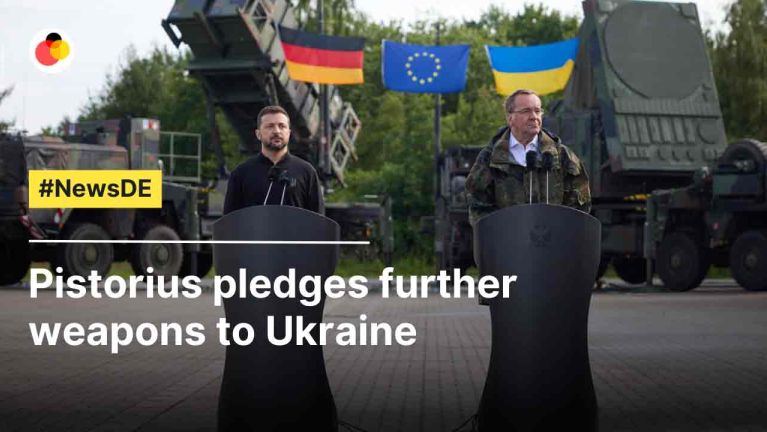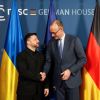How Germany is supporting Ukraine
Find out what Germany is doing to help the defensive war against the Russian aggressors.
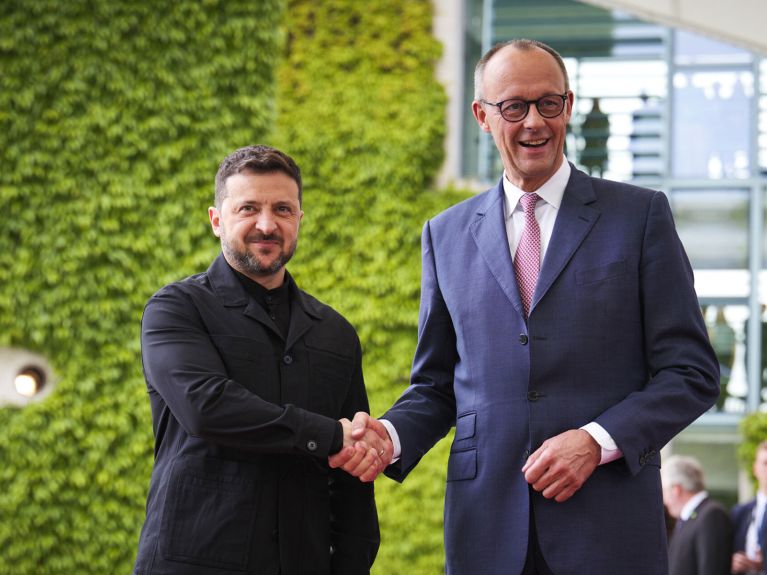
Russian troops invaded Ukraine on 24 February 2022. Even before the Russian war of aggression, Germany was a strong and reliable partner for Ukraine. In the meantime, it has become one of the country’s most important allies. Besides state support, there has been huge assistance from NGOs and numerous donations from civil society, twinned cities and associations.
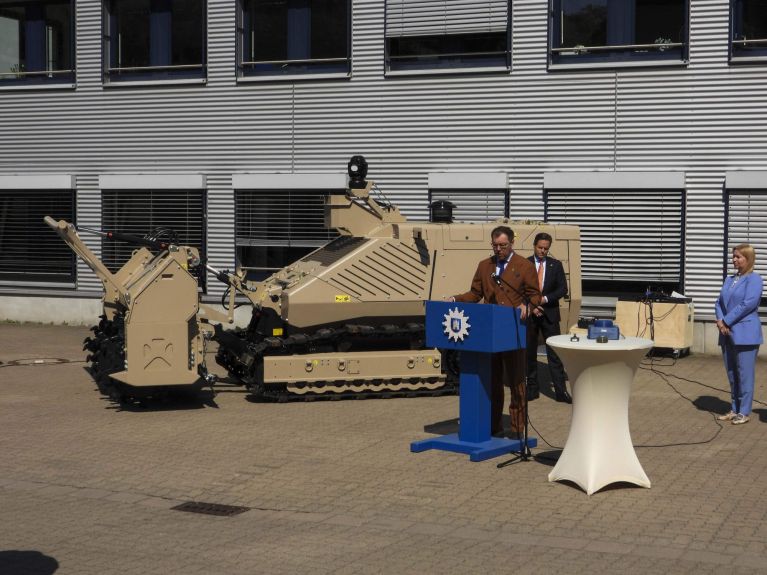
How is Germany supporting Ukraine?
The German government is providing Ukraine with extensive support to help it repel the Russian war of aggression. After the US, Germany is the biggest donor country - in political, financial, military and humanitarian terms. In total, the German state has made bilateral assistance worth around 94 billion euros available since the beginning of the Russian war of aggression – in the form of humanitarian support, direct payments or weapons. The support is provided by the competent ministries. The assistance is so broad-ranging that all 16 ministries are involved. An up-to-date overview can be found here.
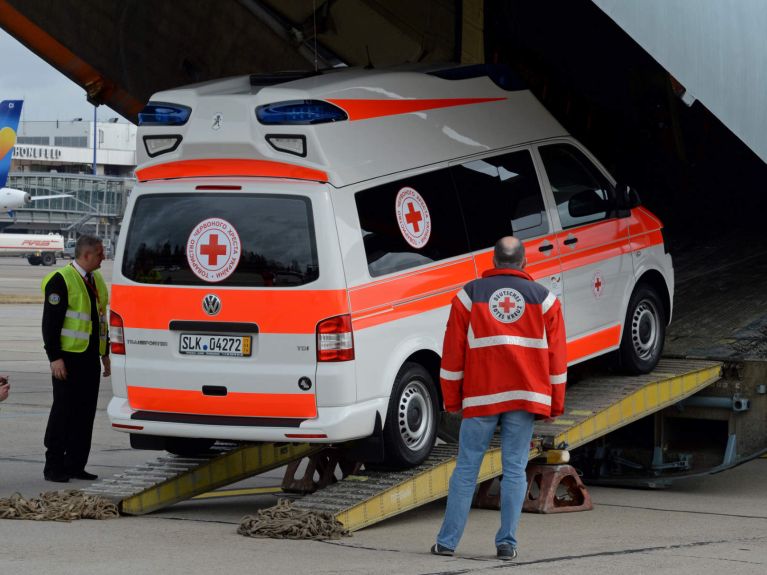
Civilian assistance for Ukraine
The lion’s share of support in Ukraine itself is provided by the Federal Foreign Office in the form of emergency humanitarian assistance and support with mine clearance, documenting war crimes, fighting crime, preserving Ukrainian cultural assets and fostering exchange between scientists and academics. The biggest sums in terms of civilian aid are made available by the Finance Ministry and the Social Ministry to provide subsistence support and training for the roughly 1.3 million Ukrainian refugees. Germany and Poland (996,000) have taken in the most refugees by far.
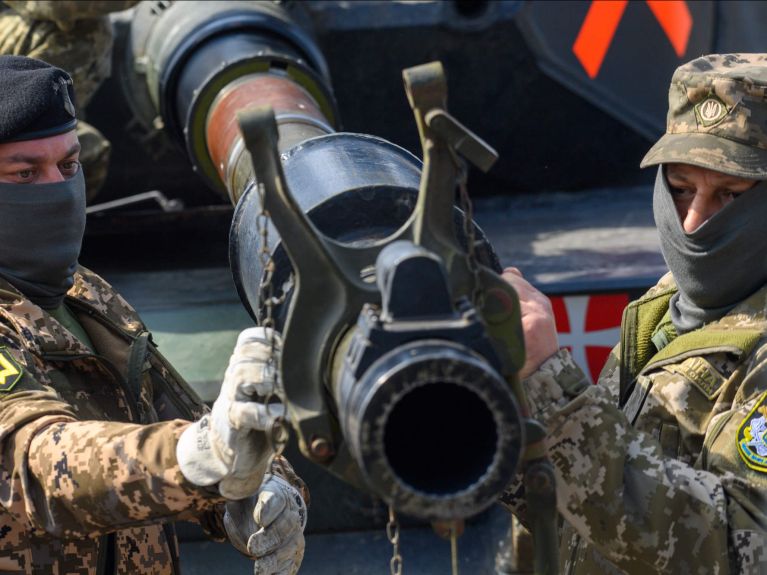
Military assistance for Ukraine from Germany
Since the beginning of the war, Germany has pledged military assistance worth around 55 billion euros to Ukraine. This includes direct shipments as well as direct and indirect financial aid, for example via partner countries, the European Union or loans.
Dieses YouTube-Video kann in einem neuen Tab abgespielt werden
YouTube öffnenThird party content
We use YouTube to embed content that may collect data about your activity. Please review the details and accept the service to see this content.
Open consent form